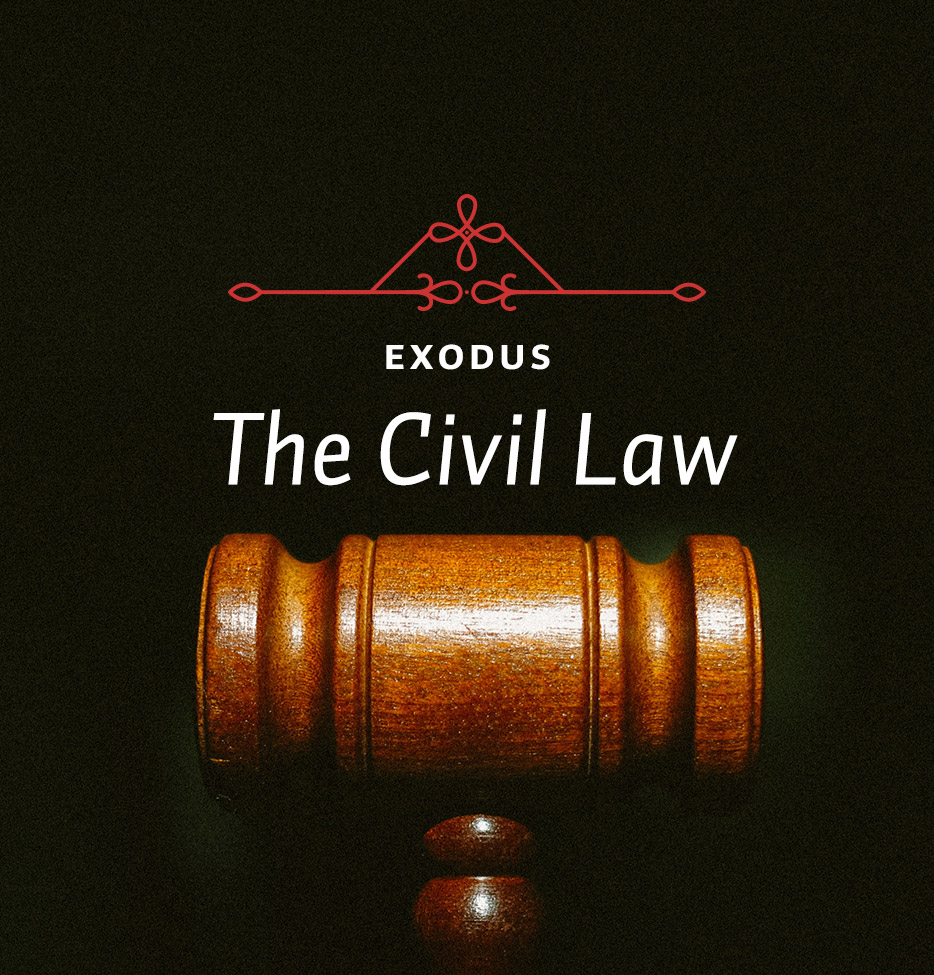Chapter 23:1-9 concern justice in the courts. Bribes were common in the ancient Near East. They pervert justice, and should be rejected. All of the other statements in this chapter have to do with Sabbath laws and festivals (see 23:10-19).
We might think that when we look at these laws having to do with Sabbath observances and festivals that they really belong with the ceremonial law. That is true, they do. And they are repeated later, especially as we study Leviticus. But they are included here, and the reason they are included here is that they concern justice for the land, justice for animals, and even justice in regard to God.
Just as a slave wasn’t to be worked without any break, or without any hope of an eventual release, so the land was not to be worked without a break. Therefore, it was to be given a Sabbath year’s rest every seven years, in order that it might recover its vitality. That is a good way to farm, but the people didn’t do that. They milked the land for all it was worth and impoverished it. Second Chronicles 36:21 implies that the seventy years of the Babylonian captivity were to make up for all the Sabbath years that the people had not given to their land. God took that command for rest seriously.
These laws looked ahead to the possession of the land. At this point the people are still in the wilderness; they don’t have any land to take care of. Nothing could be done with letting it rest for a Sabbath year. But these were laws for the future, and it’s for that same reason that you have these laws regarding the feasts—the Feast of Unleavened Bread, the Feast of Harvest and the Feast of Ingathering.
The very last of these laws is probably the most puzzling to us: “Do not cook a young goat in its mother’s milk” (23:19). The general wisdom today is that it probably seems to be explained by the fact that boiling sacrificial goats in their mother’s milk was a common ritual practice of the Canaanites. It had to do with a pagan religious function, and the Israelites were not to do that. Today, Orthodox Jews follow this verse by not serving meat and something made with milk at the same time.
Chapter 24 gives God’s promise to be with the people in power for the conquest that was yet to come. This chapter also tells of how the offering of sacrifices and the sprinkling of blood ratified the covenant between God and the nation. On this occasion Moses read the law to them, which he had written down overnight. And when the people heard it, they said that they will do everything the Lord has said. They meant it at the time, but they didn’t do it. You and I also say that we will obey, but we don’t. It’s why we need the grace of God.
Then Moses, Aaron, the two sons of Aaron—Nadab and Abihu—and the seventy elders of Israel went up onto the mountain. Verse 10 says they saw God. They did not see God’s face, for later God will go on to inform Moses that no one may see His face and live. So what verse 10 really means is that they saw the glory of God in some sense. It says they saw a sea of glass like sapphire, clear as the sky. It must have been a breathtaking moment for them. They had been given the law and, although at this point they didn’t understand the law very much; it would take years to put it into practice. But they might have said to themselves, “Well, we were up in the mountain and we were there and we had a marvelous vision of the glory of God. And that’s what we are going to live with, and that’s going to keep us going all our lives.” Actually didn’t. It didn’t at all.
How ought we to live in light of the glory of God? Let me read what it says in Hebrews 10:19-25: “Therefore, brothers, since we have confidence to enter the Most Holy Place by the blood of Jesus, by a new and living way opened for us through the curtain, that is, his body, and since we have a great priest over the house of God, let us draw near to God with a sincere heart in full assurance of faith, having our hearts sprinkled to cleanse us from a guilty conscience and having our bodies washed with pure water. Let us hold unswervingly to the hope we profess, for he who promised is faithful. And let us consider how we may spur one another on toward love and good deeds. Let us not give up meeting together, as some are in the habit of doing, but let us encourage one another—and all the more as you see the Day approaching.” We are to do these things until we actually see God face to face.






